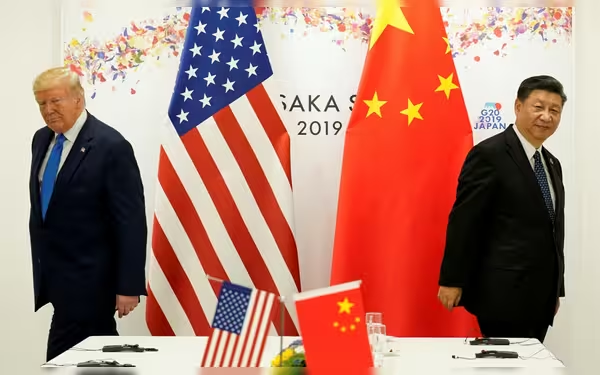Saturday, November 16, 2024 05:51 PM
Trump's Cabinet Appointments Raise Concerns in Beijing
- Trump appoints China hawks, alarming Beijing.
- Marco Rubio's sanctions complicate U.S.-China relations.
- Increased military ties with Taiwan provoke China.
 Image Credits: dawn
Image Credits: dawnTrump's cabinet filled with China hawks raises alarms in Beijing, complicating U.S.-China relations and increasing tensions over Taiwan.
In recent developments, the political landscape in the United States is shifting dramatically as President-elect Donald Trump assembles a cabinet filled with individuals known for their hardline stance on China. This has raised significant concerns in Beijing, as these officials have made strong statements comparing the Chinese Communist Party to Nazi Germany and have openly declared a new Cold War. The implications of this shift are profound, not only for U.S.-China relations but also for global stability.
Among the most notable appointments is Florida Senator Marco Rubio, who has been vocal about his views on China and is currently under sanctions imposed by Beijing. These sanctions stem from his support for various human rights causes, including issues related to Xinjiang and Hong Kong. Rubio's past actions, such as sponsoring the Uighur Forced Labor Prevention Act, demonstrate his commitment to addressing human rights violations, but they also complicate diplomatic relations. Experts suggest that his presence in the cabinet could lead to a significant reduction in dialogue between the two nations, contrasting sharply with the previous administration's approach.
Analysts have pointed out that Rubio's tough stance on China may hinder U.S. diplomatic efforts. His travel restrictions to China could pose challenges during negotiations with Chinese officials, potentially limiting the effectiveness of U.S. foreign policy. Furthermore, Trump’s choice for CIA director, John Ratcliffe, who has publicly supported the theory that COVID-19 originated from a lab in Wuhan, adds another layer of tension to the already strained relationship.
In addition to Rubio and Ratcliffe, Congressman Mike Waltz has been appointed as the national security advisor. Waltz has made headlines by declaring that the U.S. is in a Cold War with the Chinese Communist Party and has called for increased military support for Taiwan. His rhetoric, which likens China's military expansion to that of Nazi Germany, resonates with many in Taiwan, who view the U.S. as a crucial ally in their ongoing struggle for autonomy.
As the new administration prepares to take office, the potential for increased military cooperation between the U.S. and Taiwan raises alarms in Beijing. The Chinese government has consistently viewed Taiwan as a breakaway province and has not ruled out the use of force to assert its claims. The prospect of more official interactions between the U.S. and Taiwan could provoke a strong response from China, which has already ramped up military exercises in the region.
Despite the escalating tensions, Beijing has remained relatively quiet regarding the new appointments, maintaining that its policy towards the U.S. is consistent. However, experts believe that Chinese officials are likely observing the situation closely, waiting to see how the new administration will navigate its foreign policy.
Trump's administration has previously indicated a willingness to impose significant tariffs on Chinese goods, which could further strain economic relations. Yet, there are questions about whether Trump truly seeks a complete break with China or if he is positioning himself for negotiations. The uncertainty surrounding his intentions leaves many wondering about the future of U.S.-China relations.
As President-elect Trump fills his cabinet with China hawks, the world watches closely. The potential for heightened tensions and military confrontations looms large, particularly in the context of Taiwan. The decisions made in the coming months will not only shape U.S.-China relations but could also redefine the geopolitical landscape for years to come. It is crucial for both nations to find a path toward dialogue and understanding, as the stakes have never been higher.













